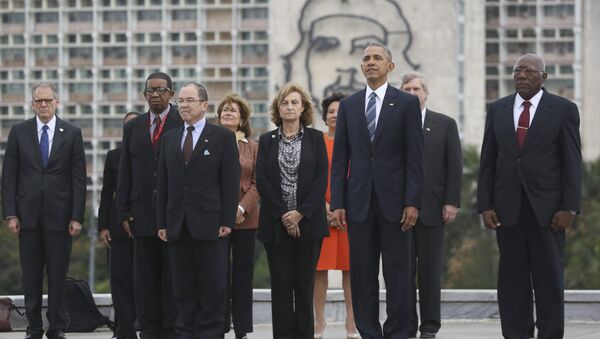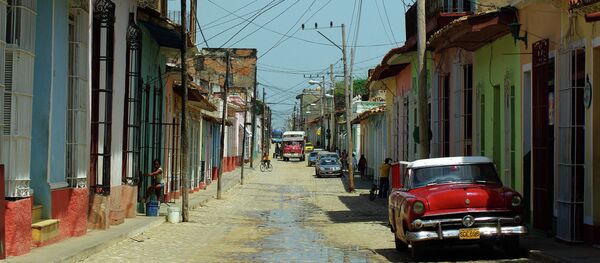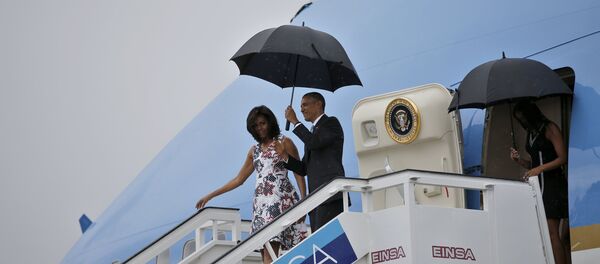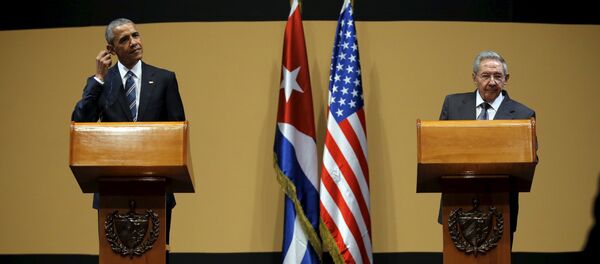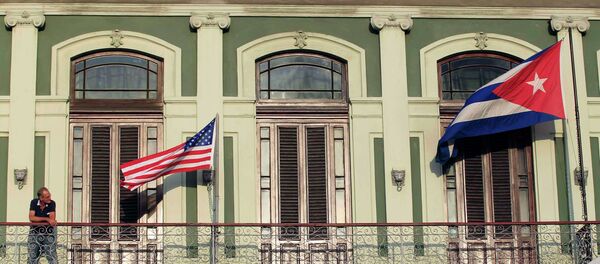Ahead of the visit, US politicians and commentators heavily criticized the president's approach, and his administration's decision, in December 2014, to declare that Washington would move to normalize relations with the island nation.
These same politicians and commentators, CounterPunch magazine wittily suggests, have persisted "in arguing that the US has been 'giving and giving' in deals with Cuba, and insisting that the Cubans reciprocate by…well, changing their government to suit American demands."
The CounterPunch article, written by Dalhousie University Latin American studies professor John Kirk and King's College journalism professor and Cuba commentator Stephen Kimber, argues that for once, "Americans need to at least consider the perspective from the Cuban side of the Florida Straits divide."
"Let's start with simple truths. Cuba did not impose a stifling, 55-year economic embargo on the United States that has failed to advance anyone's interests. Cuba did not put the United States on a list of state sponsors of terrorism. Cuba did not try to assassinate American presidents. Cuba did not attempt to overthrow the US government."
And although ending the embargo is "not surprisingly, Cuba's sine qua non for normalizing relations with the United States," this is not something within the US president's prerogative, given that only the US Congress, which is Republican-controlled and hostile to the Obama administration, can vote to scrap the 1996 Helms-Burton Act.
At the same time, the article notes, other measures, including the 1917 Trading With the Enemy Act, and the 1992 Torricelli Act, have also helped to frustrate any budding economic or business ties.
Moreover, "while the Cubans view the embargo as the most serious impediment to re-establishing normal relations with the US, there are others," including Guantanamo Bay.
"Although the naval station no longer has any American strategic or military significance, the US continues to occupy those 45 square miles of Cuban territory under a 113-year-old neo-colonial treaty from Theodor Roosevelt's day. Cuba, which hasn't cashed an annual American $4,085 'rent' check since 1960, wants its land returned. Washington says no."
"Then," the piece argues, "there are the ongoing US attempts to promote Cuban 'regime change'. From overt and covert support for violent terrorist attacks against Cuba, to beaming propaganda radio and television signals into Cuba in violation of international law, to current State Department and USAID support for anti-government groups in the name of 'robust democracy assistance' [one] can understand why Cuba sees that as a threat."
Cuba, Kirk and Kimber note, "scores well on cultural and social human rights," including health care and education, but has a ways to go "in providing individual citizens with civil and political rights."
For its part, "if Washington is really serious about improving those…it could start by stopping meddling in Cuba's internal affairs. How can Havana begin to liberalize its economy or political structure when the most powerful country in the world – 90 miles away – funds groups that seek its downfall?"
"But first it is important for both countries to understand the position of the other, to walk in their shoes." Unfortunately, "to date there has been little evidence Washington understands the Cuban concerns – and that is too bad."

